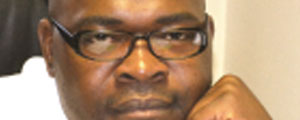
SO this continent called Africa is categorised as poor because of poor economic management, corruption and bad politics.
This is a summarised version of a message that I received in my inbox after last week’s instalment.
Everything that goes wrong is blamed on African leaders. It read as if there is a tribe that manufactures these African leaders. Every opposition leader in Africa is good, but once they assume office they mutate into bad leaders.
I am not going to address what makes them change, but perhaps their terms of reference have features of a dictator.
However, the narrative that leadership is to blame for Africa’s failure dominates development-thinking in Africa and the West. Our poverty is blamed on poor economic policies, corruption and lack of democracy.
African countries are believed to be poor because they don’t know how to manage their economies.
The same leaders are blamed for being selfish and very corrupt to the detriment of their people.
All these come together into the character of a dictator, one who does not respect the globally prescribed rules of governance, rule of law and the Constitution. In other words, a well-managed economy, non-corrupt and democratic leadership is all what Africa needs in order to develop. This world is yet to have an example of where that happened before.
- Chamisa under fire over US$120K donation
- Mavhunga puts DeMbare into Chibuku quarterfinals
- Pension funds bet on Cabora Bassa oilfields
- Councils defy govt fire tender directive
Keep Reading
Most examples of good economies and democracies have blood and bones under their foundations.
However, these are feel good narratives that soothe the mind, but have starved the stomach. That explains why in Zimbabwe we spent 15 years voting instead of focusing on better things for our welfare. We pursued a formula that gave us the same answer in several attempts on the same problem.
It could be that the answer is right or the formula is wrong or there is no problem at all. That is why the dominant subjects of discussion today are politics and succession and not development.
Let’s look at these narratives as lenses of judging African leadership. Zimbabwe is among many African countries whose economies have failed because of poor management.
The concept of economic management focuses on the management of available resources for national development.
And we have religiously drafted blueprints after another to deal with the different elements of our economy, including different agents and markets, their interactions, and the outcomes of such interactions. Remember the days when the Reserve of Bank of Zimbabwe used to drop acronym after another.
The concept of economic management assumes the existence of everything in terms of resources needed to sustain an economy.
But the fact of the matter is that despite the availability of natural resources, we do not have everything needed to make maximum use of those resources. We need to acquire what we need and not use that as an excuse for not progressing.
Countries that have made it, have acquired what they do not have in order to make use of what they have.
Japan, the leading producer of vehicles, acquires all raw materials to complement their technological ideas.
The process of acquiring what one needs is not always a clean one. Rules have been bent and broken because that is where the power of success lies. Europe colonised and brutalised Africans to feed its industry with free raw materials to become the industrialised block that it is today. Human rights were violated before democracy was deployed to sanitise their past evils.
Colonial criminality was also legalised by several colonial laws which marginalised Africans from the economy. Can Africa make it in a clean way, is the million dollar question.
Corruption existed among the Europeans during the years when Africa was being colonised, but the Western countries still prospered.
This is by no means condoning corruption, but it is not enough reason why Africa is poor. China and India have been categorised among the most corrupt countries by some Western organisations, but these countries have had the fastest growing economies and middle class. This is an illustration that there are other things we are not doing to make things right.
An estimated 150 million people in China earn between $10 and $100 per day and it is projected that by 2030 over a billion people (70% of the population) will have joined the middle class.
In India, while the middle class is around 50 million people, it is expected to reach half a billion by 2030.
One of our problems is that African countries tend to respect international relations rules a lot even if they do not favour them. This, coupled with the recipient syndrome, has made us an easy customer for the highest bidder.
That is why we can easily turn from west to east without a wink. There are things that China and India did which looked bad to the outside world, but good to their citizens.
The first is that they had a better reading of their situation which was that they were poor and, therefore, national wealth accumulation was priority ahead of democracy and human rights.
In today’s world, it sounds brutal to suggest that you cannot give people the freedom to choose when the people are starving and have nothing to choose from. l Tapiwa Gomo is a development consultant based in Pretoria, South Africa











